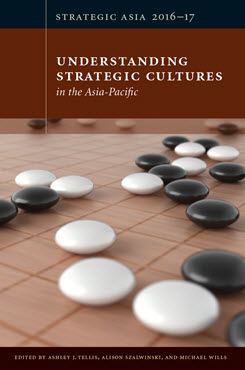The Pursuit of Autonomy and South Korea's Atypical Strategic Culture
This chapter argues that South Korea exhibits a relatively undisputed and enduring strategic culture based on autonomy that only partially corresponds to its relative power, economic wealth, and political system.
EXECUTIVE SUMMARY
MAIN ARGUMENT
South Korea’s strategic culture centers on notions of a proud, influential, and autonomous nation—the sources of which trace back to the premodern tributary system. Given the emphasis on charting its own course and being as independent as possible in its foreign policy, South Korea believes that choosing sides between the U.S. and China goes against its national interests. Furthermore, Seoul is more comfortable with a strong China than is often believed and more skeptical of Japan than is often expected. This strategic culture stems from differing past experiences with the two countries. Whereas South Korea enjoyed years of stability as a Chinese tributary, its cataclysmic experiences during Japanese occupation left a deep impression that Japan is not to be trusted.
POLICY IMPLICATIONS
- South Korea does not view its choices about grand strategy as mutually exclusive, especially between its alliance with the U.S. and engagement with China. Thus, pressure on South Korea to choose will be perceived as undermining Seoul’s priorities of relative autonomy and independence.
- Given the heightened tension between the U.S. and China, the South Korean government will have to pay particular attention to ensuring that its interests—particularly those regarding North Korea—do not increasingly become hijacked by Sino-U.S. rivalry.
- South Korea views its position in Asia and the world as much through an economic as a political or security lens. Its policies emphasize trade and investment as much as political or diplomatic relations, and are designed to advance its domestic economic priorities.
Strategic Asia
The Strategic Asia annual edited volume incorporates assessments of economic, political, and military trends and focuses on the strategies that drive policy in the region. Learn more about Strategic Asia.



